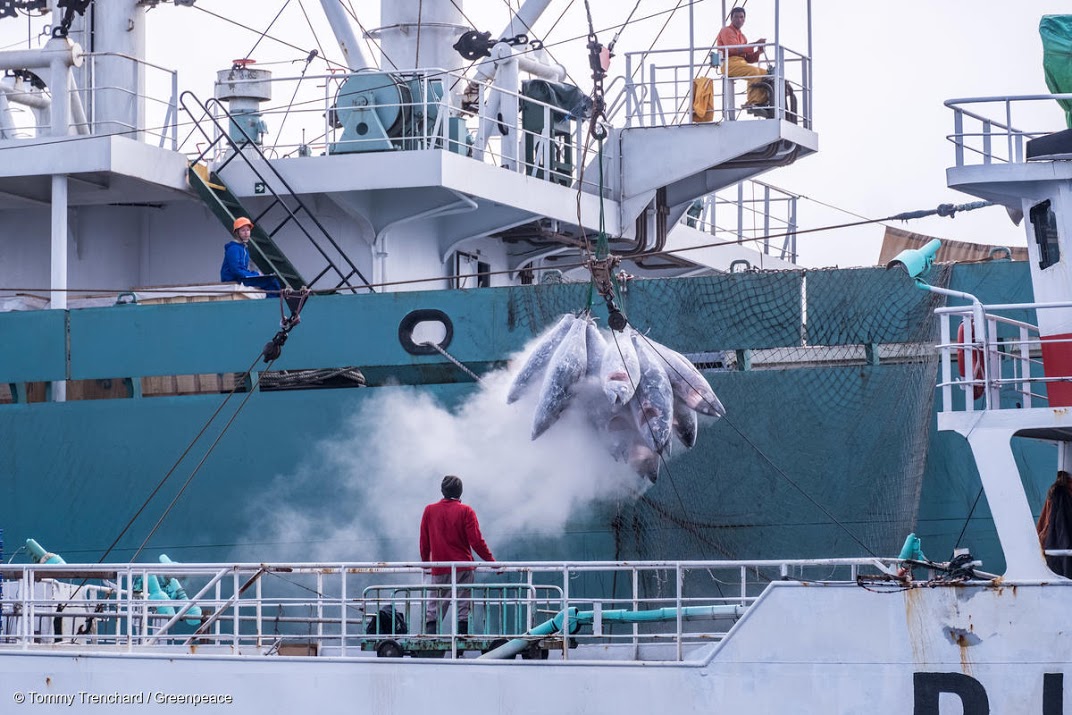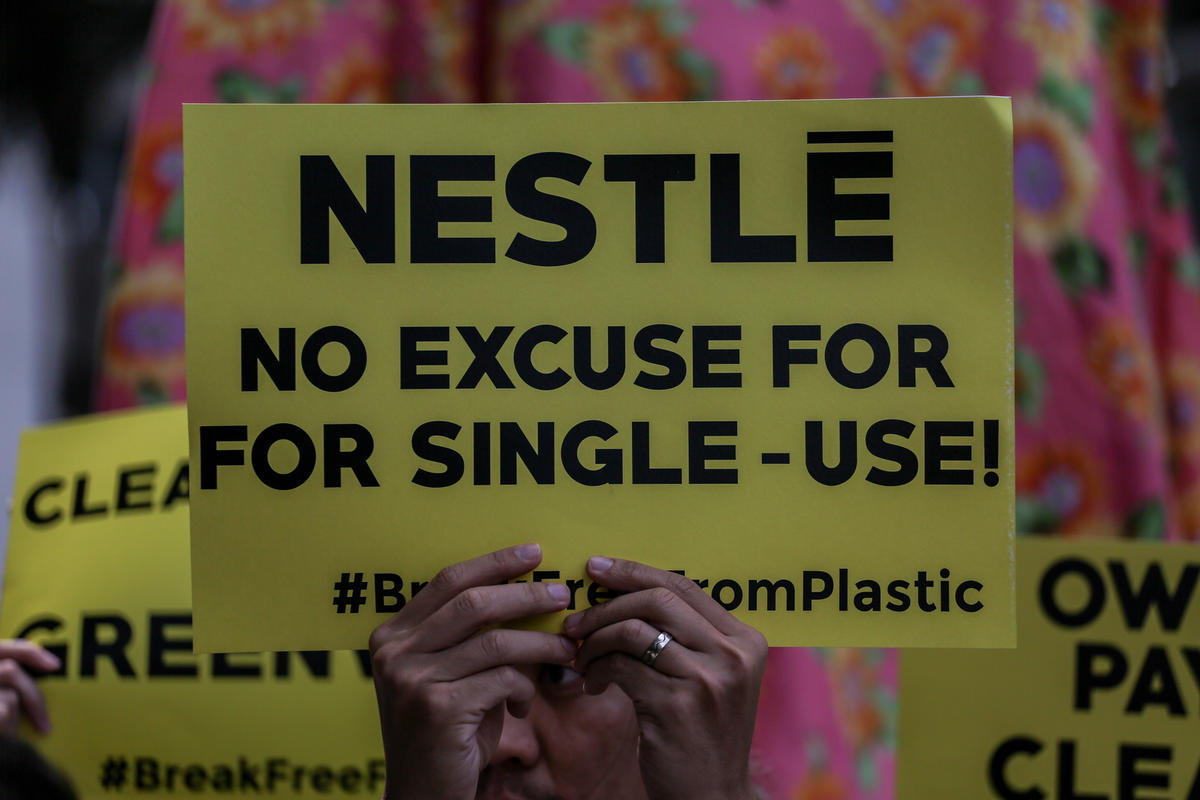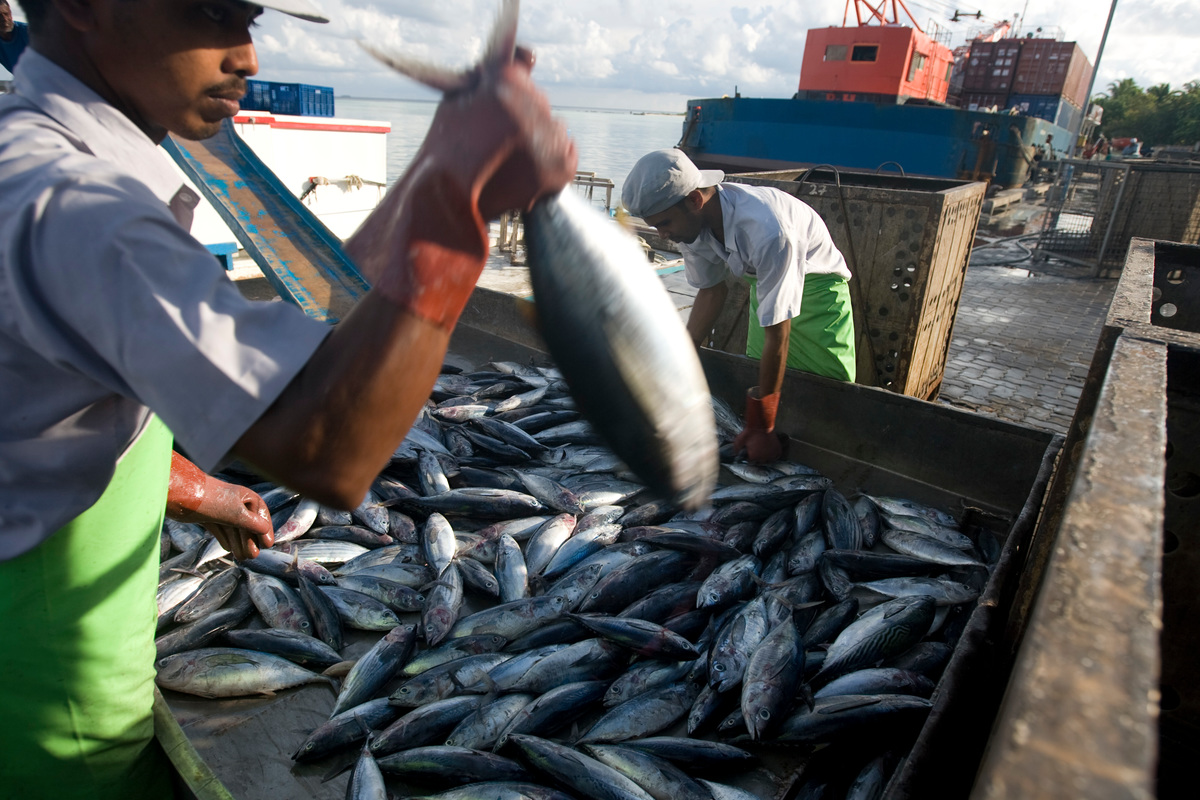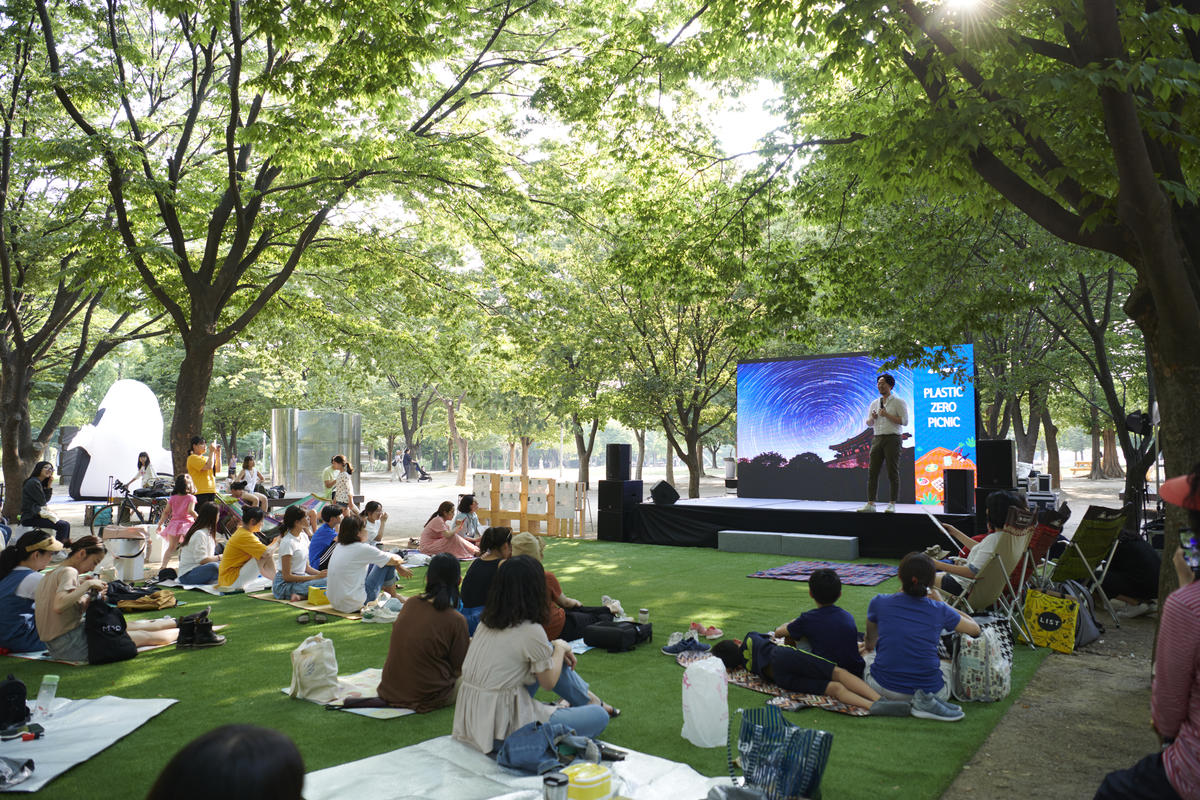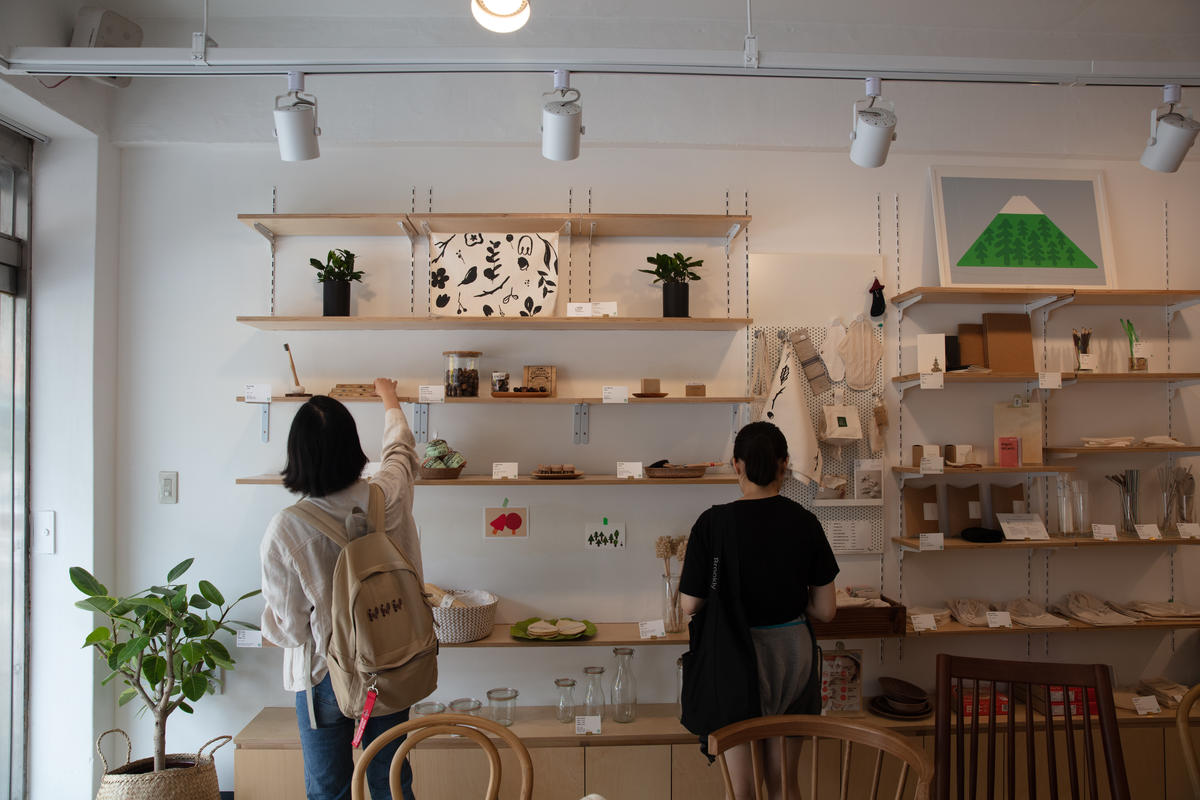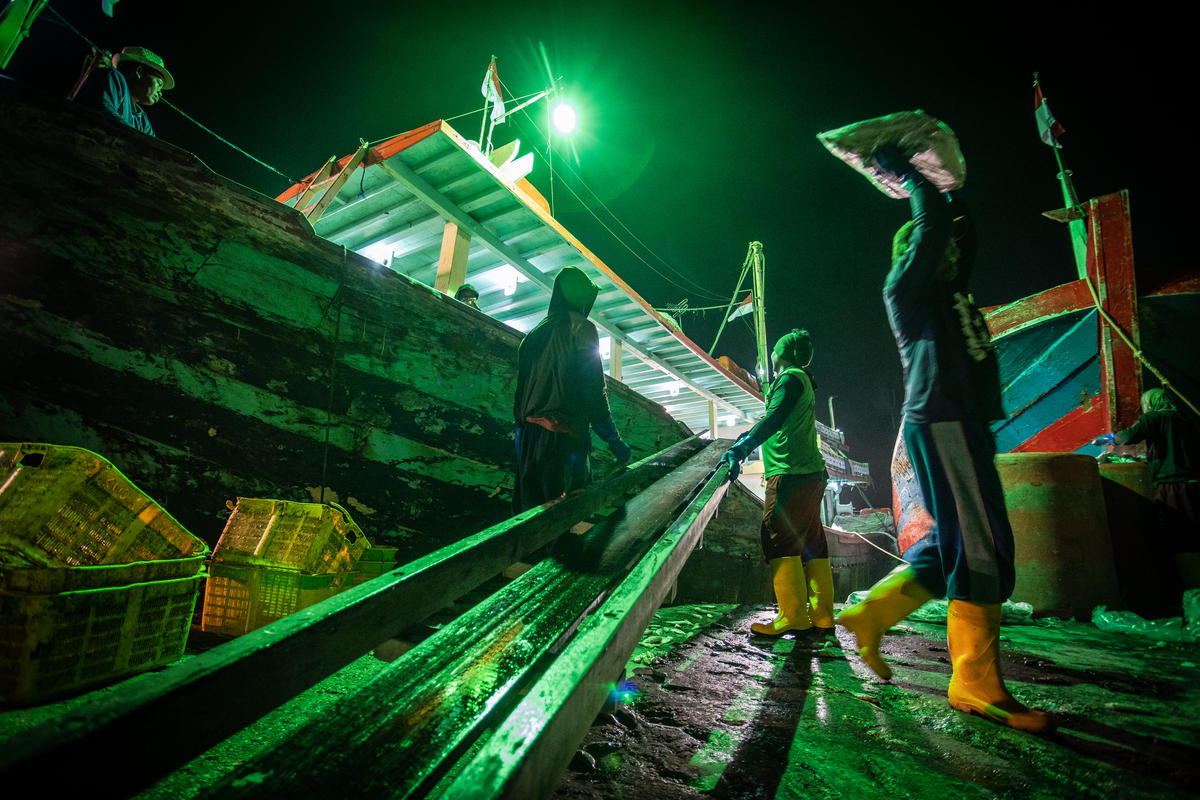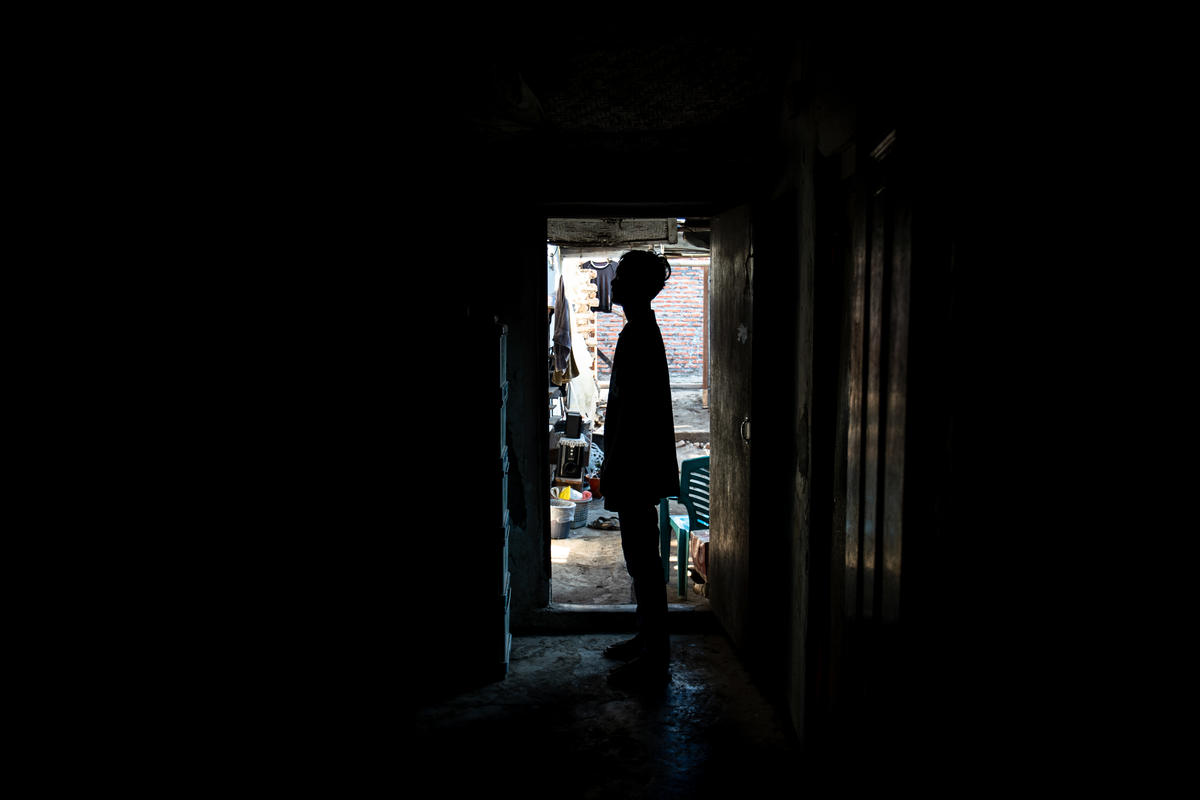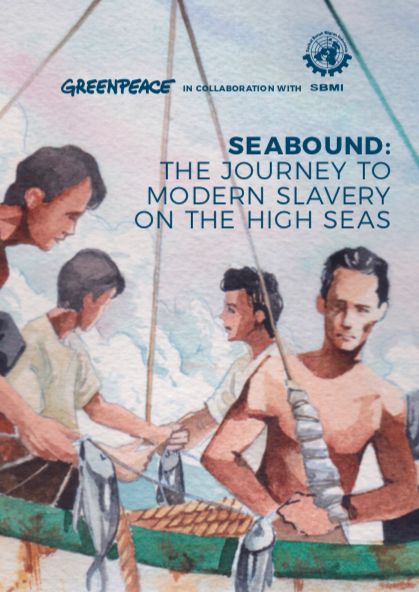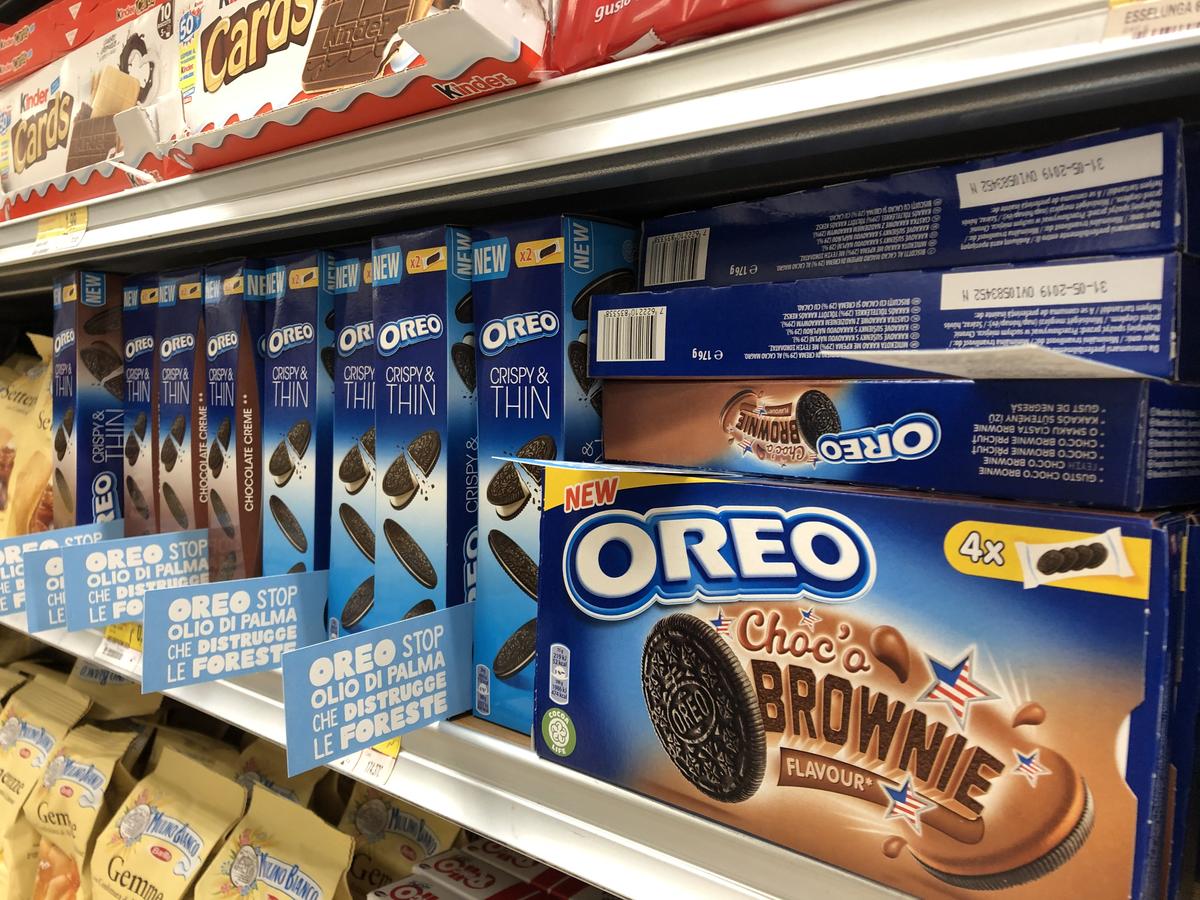-
Sustainability and Justice on the High Seas: 2020 edition Southeast Asia Canned Tuna Ranking
In the fourth edition of Greenpeace Southeast Asia’s Tuna Cannery Ranking, we evaluated nine canned tuna brands in Thailand, five tuna canneries in Indonesia, and six tuna canneries in the Philippines
-
Greenpeace demands sustainability and due diligence on human rights for tuna industries in Southeast Asia
Lack of support and accountability for migrant fishing crew remain a failing issue, with only 20 percent of major southeast Asian tuna brands providing measures to reduce, or eliminate modern slavery at sea, according to the latest cannery ranking report by Greenpeace Southeast Asia.
-
Greenpeace statement on Nestle Malaysia’s unsustainable move from plastic to paper straws
Nestle (Malaysia) Bhd announced today that it plans to adopt paper straws across its entire range of ultra-high temperature (UHT) by year end. Although Nestle claims this move will help in tackling the plastic pollution crisis, it is a misguided one, that aims at switching from one throwaway material to another. It also does not…
-
Fisherfolk helping out Thailand’s essential workers is the community spirit we need right now
During the lockdown, the fish markets were temporarily closed. Few people visited so local fishers lost their regular clientele, and fresh seafood prices significantly dropped by more than a half due to higher transportation costs.
-
The city of our post-COVID future
While we are in the midst of this pandemic, a powerful act is to start imagining what kind of city we might be living in when this pandemic slows down.
-
Health and the Reuse Revolution: Is disposable safer than reusable? Let’s consult the science
We’re tackling the questions: are single-use packaging and containers actually safer? Is the fear of contamination from reusable containers justified?
-
Five reasons modern slavery at sea is still possible in 2019
In a new report, “Seabound: The Journey to Modern Slavery on the High Seas”, Greenpeace Southeast Asia spoke to many migrant fishers about their experiences in order to present a snapshot of the living and working conditions onboard distant water fishing (DWF) vessels, according to the fishers themselves.
-
New testimonials suggest “modern slavery” for Southeast Asian migrant fishers working out at sea
13 foreign distant water fishing vessels have been accused of abusing migrant fishers from Southeast Asia, in cases so severe it has been characterised by many as “modern slavery”
-
Seabound: The Journey to Modern Slavery on the High Seas
For several years now, international media has shone a spotlight on the inhumane working conditions of migrant fishers from Southeast Asia. The vessels they work on reportedly use destructive, illegal, and unreported methods, which take a heavy toll on the health and viability of our already fragile oceans.
-
Major consumer brands linked to massive CO2 emissions from Indonesia forest fires
Some of the world’s best known brands are fueling climate change by sourcing palm oil and wood pulp linked to Indonesian forest fires, reveals new Greenpeace International analysis.


